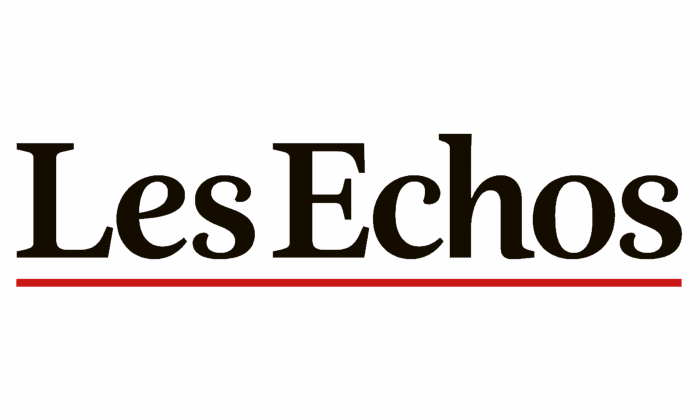Cryptocurrencies, and Bitcoin in particular, are part of a major contemporary debate on the nature of money and the role of institutions. Cryptocurrencies indeed represent an attempt to found an alternative to traditional currencies. To properly understand what these new assets propose, and what differentiates them from official currencies, we must rethink the essence of money, the role of institutions, and trust. It is therefore useful to undertake a deeper reflection that addresses not only economic questions but also anthropological and political philosophy issues, by analyzing the fundamental differences between the libertarian school and the institutionalist school. 
A cryptocurrency is a digital currency whose transactions are recorded and verified by decentralized technology, often blockchain. Bitcoin, which appeared in 2009 (that is to say, notably, right after the great financial crisis), is the first cryptocurrency to have achieved significant success. Its founding principles are decentralization, the absence of a central authority controlling the creation or regulation of the currency, limited supply, transparency, and transaction immutability. 
The founders of Bitcoin promoted this currency for several reasons. First, it would protect against inflation of the money supply and monetary manipulation: unlike official currencies, which are created by banks and regulated by central banks, Bitcoin relies on a fixed and predetermined protocol, without the intermediary of a financial institution. Second, it offers more individual freedom and autonomy, giving the user anonymity and independence from a national currency and its constraints. It also introduces the notion of algorithmic trust: instead of relying on an institution, one trusts the technology and the distributed consensus of the network. Finally, it can promote financial inclusion in areas where access to banking services is limited. 
Bitcoins and other similar cryptocurrencies essentially stem from the utopia of a world in which money would no longer be national but universal, valid for all countries and people, transferable securely and without costs. This currency would do without intermediaries; its value could not be manipulated by governments or central banks. It would be tied to private decentralized governance. It would guarantee transaction anonymity, and its guardian would be not a central bank but an algorithm, assumed to be infallible — a form of anarcho-capitalist utopia. In the 1970s, Friedrich Hayek and the Austrian school recommended denationalizing money, removing the monopoly of money creation from governments and leaving this task to private industry. In a way, the development of cryptocurrencies could be an attempt to fulfill this desire. 
The differences with official bank money are therefore fundamental. Modern money is always, upon issuance, a debt of the issuer (a bank in this case) to itself. But this private debt must be recognized by society to be universally accepted as a liberating means of payment — that is, a means of payment that frees the holder from the debt created by the exchange. Modern money is issued by banks, no longer in proportion to gold or silver holdings, but based on economic development. Money is created from credit, which simultaneously results in the creation of a deposit for the borrower. This deposit appears as a liability for the bank. It is legally a debt of the bank to the deposit holder. Bank deposits thus serve as money because they are accepted by society as a liberating means of payment (unless there is a collective loss of confidence in the bank’s solvency). Credits therefore make deposits. Today, banks create money ex nihilo — no longer linked to precious metal holdings but according to credit demand and economic needs. Moreover, this system is regulated by an external institutional authority — the central bank — since the automatic regulation of money creation by the convertibility of money into gold or silver has disappeared. 
It was the severe recurring financial crises in the second half of the 19th century that led to the creation of official institutions, central banks, after repeated bank failures. Central banks, by homogenizing the monetary space (e.g., one dollar issued by one American bank always equals one dollar issued by another) and by acting, if necessary, as lender of last resort, created the possibility of stability. The usefulness of institutions and rules thus became clear. 
Bank money — which is therefore a bank debt — regulated by central banks and governments relies on confidence in these institutions. Trusting money therefore means trusting the effectiveness of the debt settlement system. And the money supply, backed by credits to the economy, evolves primarily with the economy’s needs. 
Bitcoin and other cryptocurrencies, by contrast, have a limited, pre-fixed supply, independent of economic needs. Not backed by any official institution but by a protocol, and having no economic counterpart, they are highly volatile and their value is completely self-referential. Bitcoin, for example, is worth only what buyers and sellers agree it is worth, with no external objective reference such as the economy, and with no external regulation. Their legal framework is also uncertain. Their universal adoption therefore remains very limited. 
From an anthropological and political philosophy perspective, it becomes clear that the libertarian school’s ideas about the role of institutions illuminate the choices of “Bitcoiners.” They promote cryptocurrencies as a response to institutions deemed dangerous or oppressive by nature. They thus create a new non-official alternative “institution”: a set of rules coded in a protocol, norms, and a trust system based on technology rather than the state. Libertarians believe institutions are artificial constructs that hinder human self-organization. Institutionalists, however — along with thinkers like René Girard — view institutions as the product of spontaneous societal evolution, representing historical learning aimed at improving social efficiency and peaceful coexistence. 
Institutionalists see institutions as deep and resilient social structures. They encompass formal rules such as laws, contracts, or central banks, and informal norms like customs or shared beliefs. They are the “rules of the game” that structure social interaction, enable effective cooperation, strengthen mutual trust, and reduce transaction costs and conflicts. Without them, markets, economic life, and social peace would be unstable or chaotic. Girard, specifically, sees institutions as regulators of violence, developed through human history to channel societal tensions. Money itself plays a role in organizing exchanges and maintaining social order. 
Thus, Bitcoin — a private money not backed by a public institution and issued without reference to society’s evolving needs — cannot be validated universally as a liberating means of payment. Its self-referential value and high price volatility make everyday use as a payment method very difficult. 
However, institutions themselves are not immutable; they can become ineffective or distorted. If, for example, monetary constraints were suspended for too long — such as through sustained public debt monetization — confidence in the debt settlement system and in money itself could be undermined, potentially leading to economic and societal collapse. Money is, as Michel Aglietta said, “the alpha and omega of society” — the fundamental social bond. 
Cryptocurrencies, including Bitcoin, could thus establish themselves as alternative or even substitute money if debt levels relative to GDP continue rising globally and if fears of “corruption” of official money through sustained monetization take hold. Otherwise, their characteristics make them highly speculative assets whose value depends solely on market participants’ anticipations of each other’s future behavior — speculation “in a void.” They are not money, and we should be cautious about letting them become so. 


